Ancient Greek Demons or Daimon, sometimes also spelled as “Daemon,” originally referred to lesser deities. It was an umbrella term that covered guiding spirits of the Hellenistic religion and philosophy.
The word derives from Proto-Indo-European linguistics, which roughly translates to “Provider, or Divider of Fortunes or Destinies.”
Ancient Greeks saw Daimons as the perished souls of men of the golden age. The ancient Greek diaspora also believed that these fallen souls acted as tutelary deities and acted exactly opposite the Greek Gods and goddesses.
Historians can trace the origins of both words- daemons and demons, back to Greek mythology.
In ancient Greece, though, daemons personified spirits of the human condition. They were often associated with abstract concepts like love, jealousy, and death.
Despite holding lesser titles, daimons are a large part of the Greek Pantheon.
Here are the top 20 Ancient Greek Daemons/Demons.
What is Hellenic Paganism?
Content
Hellenic Paganism refers to pagans who worship Olympian deities. Although ancient Greeks practiced Hellenic religion, the expansion of modern Christianity led to its decline.
Why are so many Greek daemons female?
According to classicist Debbie Felton, female daemons speak to man’s fear of women’s destructive potential.
In a patriarchal society, the myths, to a certain extent, play a role in fulfilling a male fantasy of conquering and controlling the female.
Are there Christian counterparts to Greek Daemons?
We can make comparisons between some ancient Greek daemons and Christian demons.
Examples include Lucifer being a plausible counterpart to the Daemon Hubris and Belphegor being a counterpart to Lethe.
20. Adikia (Adicia), a Greek demon of injustice
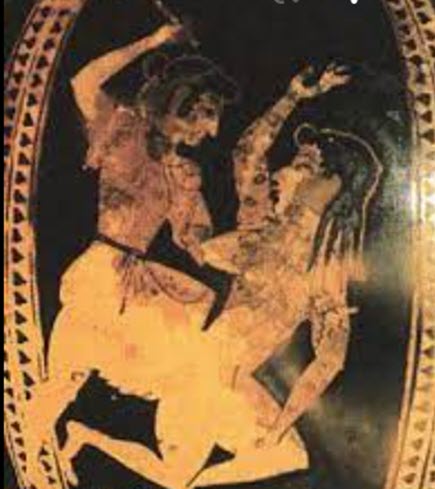
The personified spirit (daimona) of injustice and wrong-doing, Adikia was often depicted as a barbarian woman with skin covered in tattoos. Adikia’s spectral opposite was the spirit Dike (Justice).
Archeologists have also uncovered ancient Greek amphoras with depictions of Dike beating Akidia with a club. One such amphora is displayed at the Kunsthistorisches Museum in Vienna.
19. Apate, a Greek demon of deceit
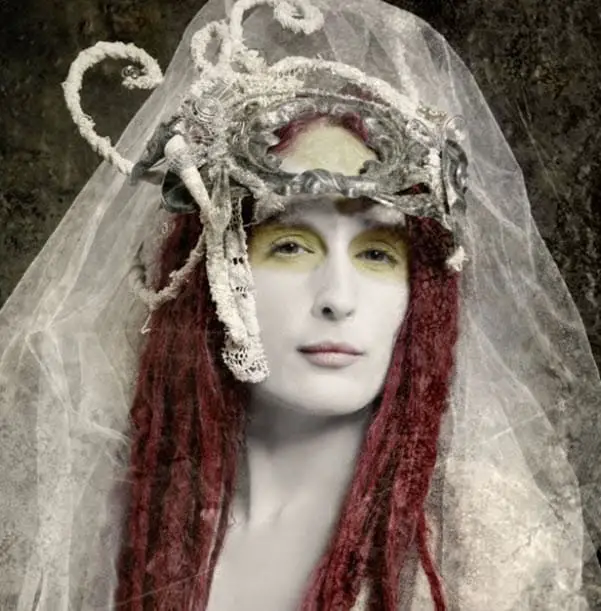
The personified spirit (daimona) of deceit, deception, guile, and fraud, Apate encouraged humans to astray from their righteous path and morality. She was a companion of Pseudologoi, the daimona of lies.
Dolos, the Daimon of trickery, was her male counterpart. Similarly, her spectral opposite is Aletheia, the spirit of truth.
18. Koalemos (Coalemus), a Greek demon of stupidity
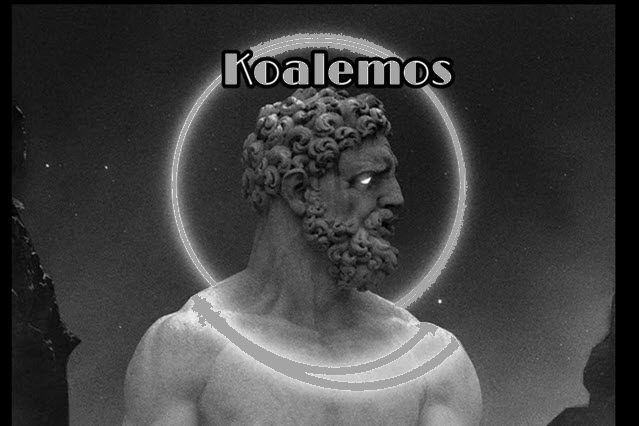
The personified spirit (Daimon) of stupidity and foolishness, Koalemos induced people with slow wit and dullness. Aristophanes also mentions Koalemos in his play. This Daimon’s name derives from koeô and êleos, which mean “to hear foolishness.”
17. Dolos (Dolus), a Greek demon of trickery
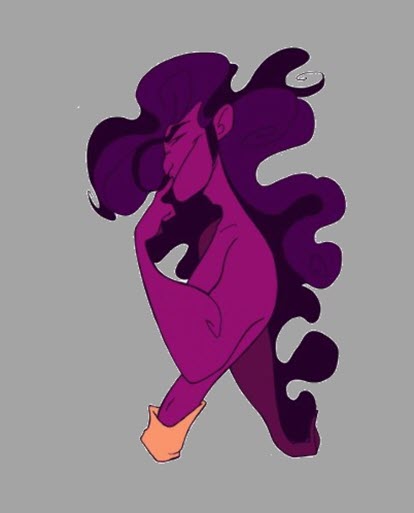
The personified spirit (Daimon) of trickery, Dolos induced cunning deception among friends. He instigated thoughts of craftiness, treachery, and guile.
The Titan Prometheus also had Dolos as his apprentice. Like Apate, the female counterpart, Dolos was also a companion of Pseudologoi.
16. Geras, a Greek demon of old age
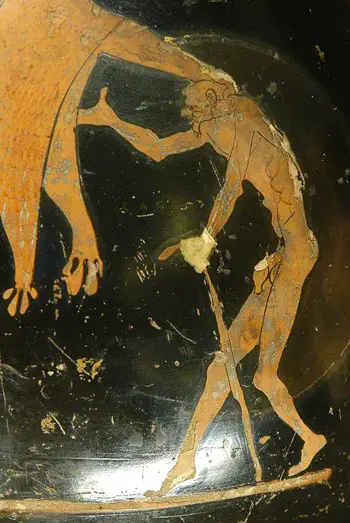
Perhaps a neutral spirit, Geras was old age’s personified spirit (Daimon). He was amongst the evil spirits birthed by Nyx, the Greek Goddess of the Night.
Ancient Greeks depicted Geras as a shriveled-up older man with a bent back. Likewise, Geras’ spectral opposite was Hebe, the Goddess of youth.
Like the ones displayed at the National Etruscan Museum, old Greek amphoras and clay jars depict Geras draped in white.
15. The Algea
Ancient Greek demons (daimones) of pain, the Algeas, brought bodily malice, like the suffering of the body and mind. They were also the daimones of grief, sorrow, and distress. To ancient Greeks, they were the bringers of tears and weeping.
The Algea were also related to Oizys, the milder spirit of sadness and misery. They often followed Penthos, the God of mourning and lamentation. And their spectral opposites were Hedone, the spirits of pleasure, and the Kharites, the spirits of charity and joy.
14. Aidos (Aedos), a Greek demon of modesty
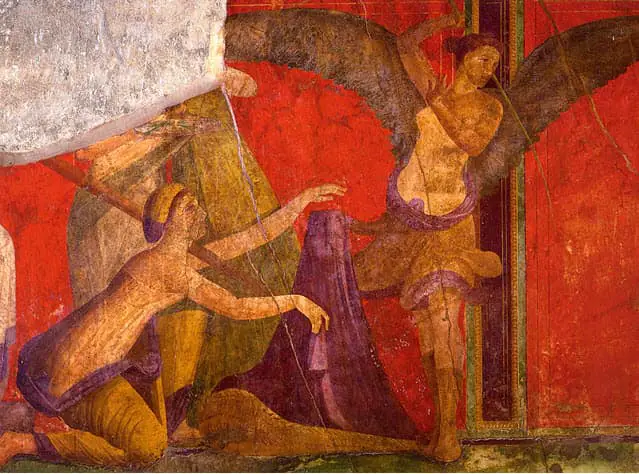
Like Geras, Aidos was a daimona associated with shame, respect, modesty, and reverence. She was honored as the Goddess Nemesis for being her companion.
Aidos could restrain men from acting incorrectly, and she would do so by evoking the sentiment of guilt.
As per the myths, she was one of the last deities/daimona to have left the earth after the end of the Golden Age.
13. Agon, a Greek demon of contest
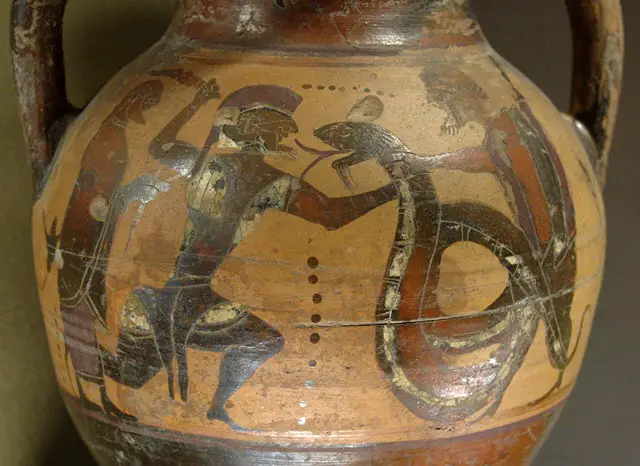
Agon was the Daimon associated with the contest and possessed the altar at Olympia- the place of the Olympic Games.
He was often regarded as the same as Zelos, the Daimon of rivalry and the brother of Nike, the spirit of victory. Agon evoked the feeling of competition in men and flourished their desire to win.
12. Anaideia, a Greek demon of ruthlessness
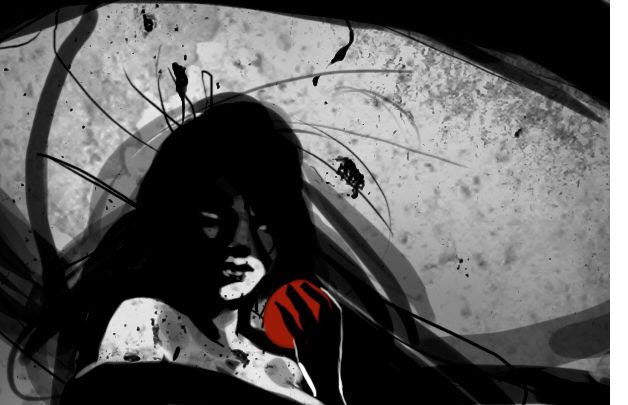
The personified spirit (daimona) of ruthlessness, Anaideia evoked unforgivingness in men. She was often associated with ruthless military leaders or kings who waged wars.
Anaideia was also a companion of Hybris, the Daimon of violence. In like manner, her spectral opposite was Eleos, the spirit of mercy.
11. The Phonoi, a Greek demon of murder
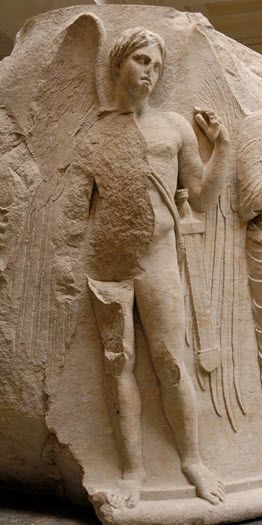
Phonoi were the ancient Greek demons of murder and slaughter. The Phonois were sisters of the Androktasiai, the daimoneses who presided over battlefields.
Hesiod mentions the Phonoi in the epic poem The Shield of Heracles, where the demon is one of the many figures on Heracles’ shield.
10. Koros (Corus)
The feelings ruled by Koros, the personified spirit (Daimon) of satiety and surfeit, were insolence and disdain. Koros was the son of Hubris, the Daimon of excessive pride, and the brother of Dyssebeia, the Daimon of impiety.
9. Dysnomia, a Greek demon of poor civil order
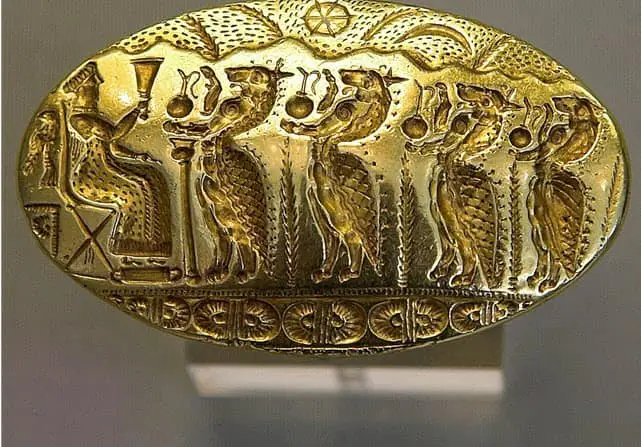
The daimona of lawlessness, Dysnomia personified the spirit of poor civil order.
Like Aidos and Nemesis, Dysnomia was an auxiliary companion of Adikia, the daimona of Injustice, Ate, the Daimon of ruin, and Hybris, the Daimon of violence. Her spectral opposite was Eunomia, the spirit of civil order.
8. Epiales
The personified Daimon of nightmares, Epiales, was also known as the melas oneiros to ancient Greeks, which means “black dream.”
Because of his nightmare personification, Epiales ranked amongst the Oneiroi (Dream-Spirits), spawns of the Greek Goddess Nyx. The Greek word epialês derives from the word epiallô, which means “to lay upon.”
7. Homados, a Greek demon of the din of battle
The “din of battle” is a battle cry. It can also refer to any slogan soldiers cry out to rally supporters of a campaign. Homados is the personified spirit (Daimon) of the din of battle.
He personifies the cries and shouts of men on the battlefield and weapons clashing. Ancient Greeks often depicted this Daemon amongst the Makhai (Machae), the daimones of the battlefield.
6. Hybris, a Greek demon of violence
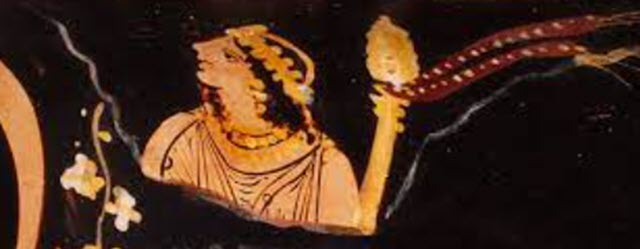
As aforementioned, Hybris was the personified spirit of violence. These daimones evoked feelings of disrespect, hubris, reckless pride, and arrogance. Petulantia was her Roman counterpart.
Hybris was the spawn of the primordial Greek Gods- Nyx and Erebus. Other sources cite Aether, the Titan of Air, and Gaea, the Titan of the Earth, as her parents.
5. The Keres, a Greek demon of cruel death
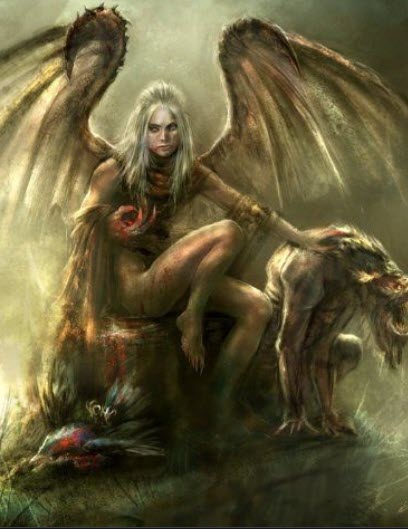
Keresi were the female ancient Greek demons (daimones) of violent or cruel death. They personified death in battle, death by accident, murder, or even diseases.
Their spectral opposite was Thanatos, the God of non-violent death. The ancient Greeks believed that these daimoneses haunted the battlefields, hunting and preying over the dying.
Myths also say that Pandora released Keres when she opened the forbidden jar.
4. Lethe, a Greek demon of forgetfulness
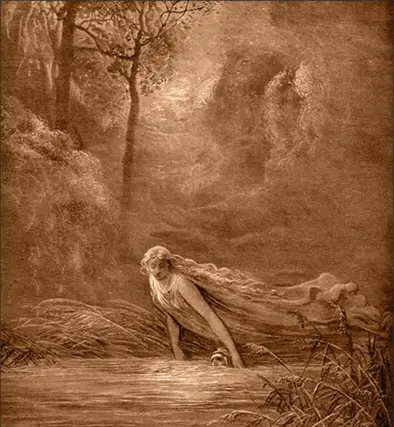
The daimona Lethe was the personified spirit of oblivion and forgetfulness. Ancient Greeks often connected her with the Lethe river in the underworld.
The river erased the memory of anyone who dared to swim in it. Her spectral opposite was one of the Greek Titans, Mnemosyne, the spirit of memory.
3. Limos, a Greek demon of hunger
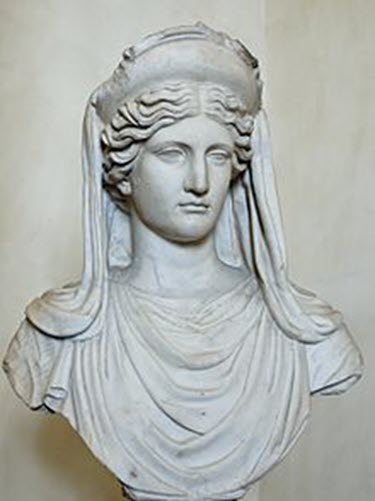
Limos personified hunger and starvation. This Daemon infested the aftermaths of battles and war.
The spectral opposite of Limos was Demeter, the Goddess of food and mother of Persephone, the Queen of the Underworld, and the wife of Hades. Ploutos, the spirit of plenty, was also his opposite.
2. Lyssa, a Greek demon of rage
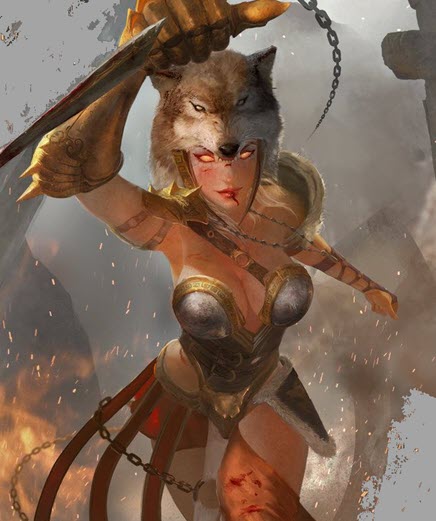
Lyssa personified mad rage and fury. She personified rabies in animals too. A figure of Athenian tragedy, Lyssa was an agent of Dionysos, who sent her to drive the Minyades mad.
The myths also mention her in Euripides, where the Goddess Hera sent her to inflict Herakles with madness.
1. Penia, a Greek demon of poverty
This daimona personified poverty and need. Penia was an auxiliary companion of Amekhania, the Daimon of Want of Resource, and Ptokheia, the Daimon of Beggary.
Her spectral opposites were Ploutos, the God of Wealth (Hades is the Greek personification of Plutus), and Euthenia, the spirit of prosperity.
Conclusion
Modern monotheistic religion is inspired by ancient Greek and Roman deities and practices.
Modern religion also includes many saints, like ancient Greek daemons, who virtually serve every aspect of life. It isn’t untrue that many Christian rituals also trace their origins to pagan rituals of the past.
Ancient cultures’ sheer complexity and sophistication make them relevant to this day.
